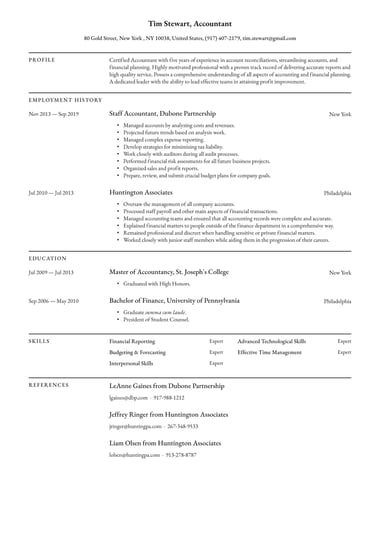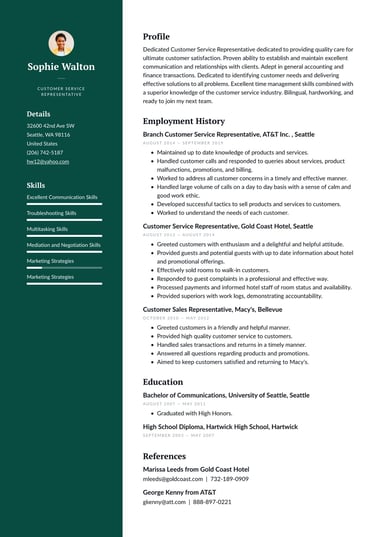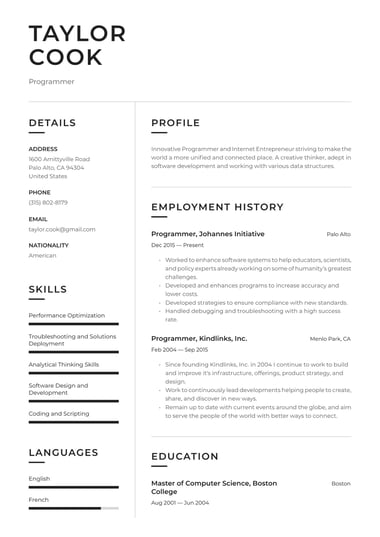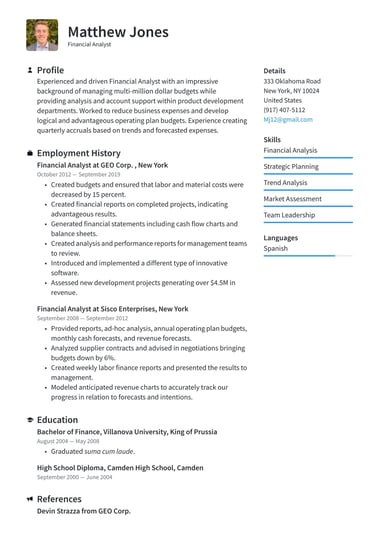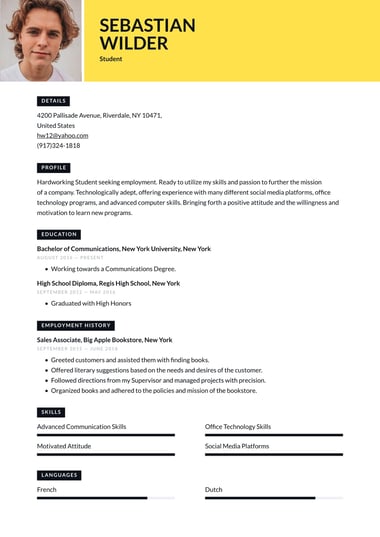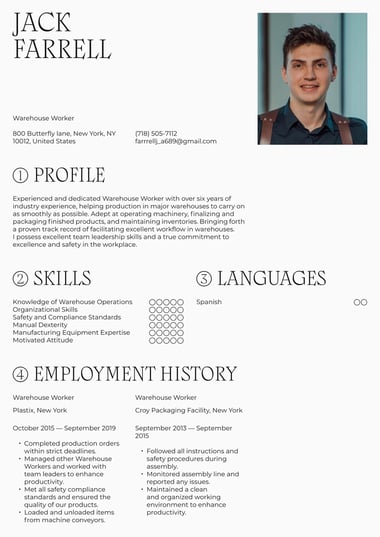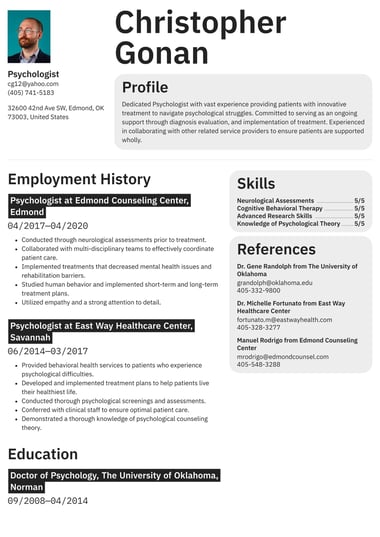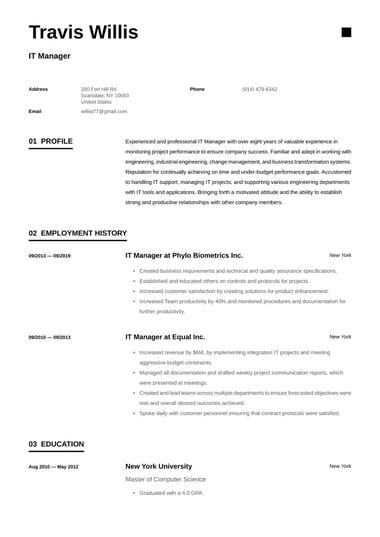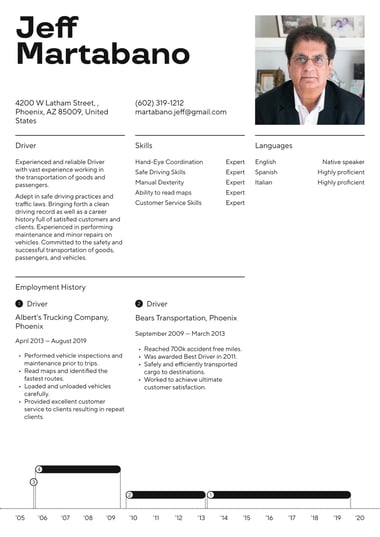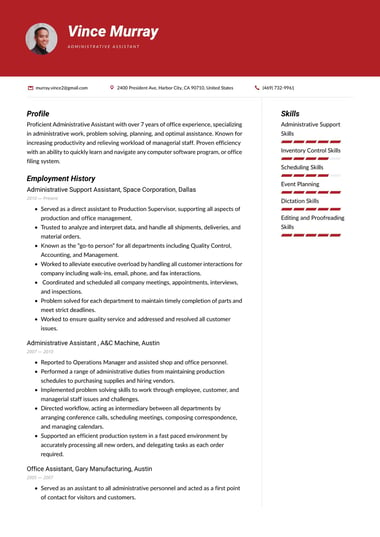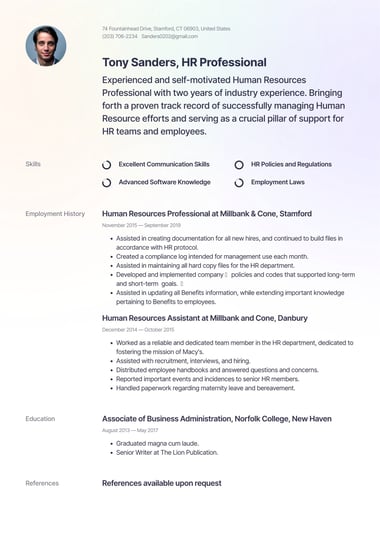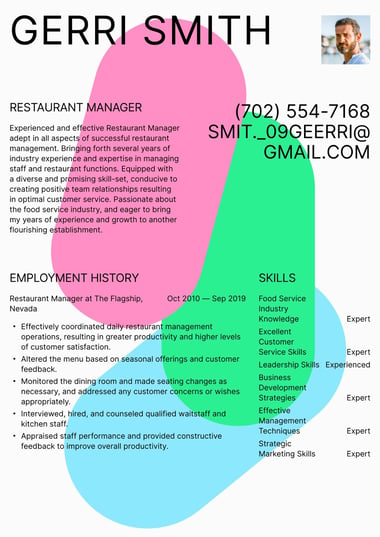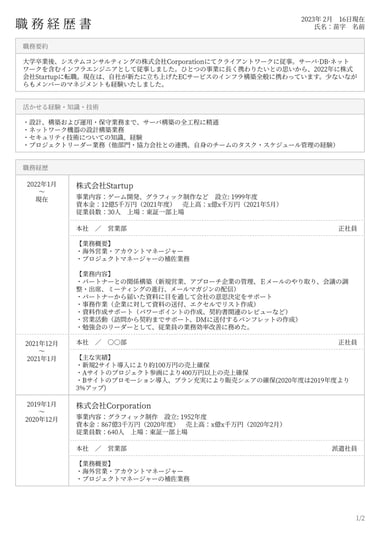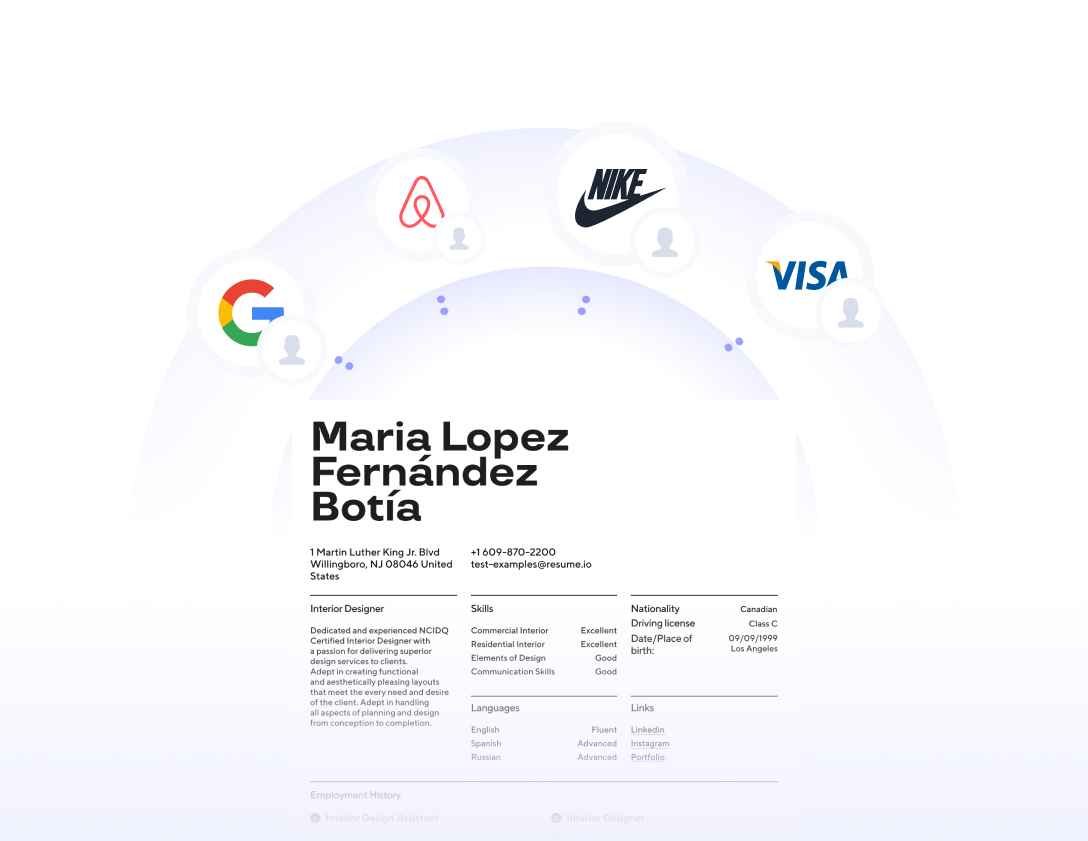Why use our free resume templates?
Resume.io’s resume templates are expertly designed to help you land your next great position. Whether you’re in a hurry to submit your application or simply don’t know where to start, our resume templates provide a strong foundation to make your experience and qualifications shine.
Here are some of the advantages of our professional resume templates:
- Easy to use: We’re all about great design with no hassle. That's why our templates are intuitive and easy to use, saving you precious time when it comes to creating a great resume.
- ATS-friendly Resume Templates: Hiring managers aren’t the only ones who will be evaluating your resume. That’s why we’ve created our templates with automated resume scanners in mind and made sure our templates are easy to read for both humans and robots alike.
- AI-powered sample sentences: Our templates are powered by our intuitive AI resume builder that makes it easy to craft a job-winning resume with features like an AI-powered summary generator and sample sentences for hundreds of job titles.
- Highly customizable: Every applicant and every job is different, so we’ve created templates that can be easily adapted to your needs. Change the color scheme, add a photo, or adjust the line spacing in just a few clicks.
- Adaptable for all jobs and industries: Our collection of professionally designed templates range from simple and minimalistic to modern and professional to ensure there’s a layout for every job and industry.
- Free & premium options: Our trial and tiered pricing plans mean there’s an option for everyone. Try for free or subscribe to Resume.io to download as many versions as you’d like.
- Download as Docx or PDF format: Different employers require different formats for your job application, which is why we’ve created the option to download many of our templates as either PDF or Word Docx files.
Choosing the right resume template
Our resume templates are divided into four categories to help you quickly find the template that’s best for you.
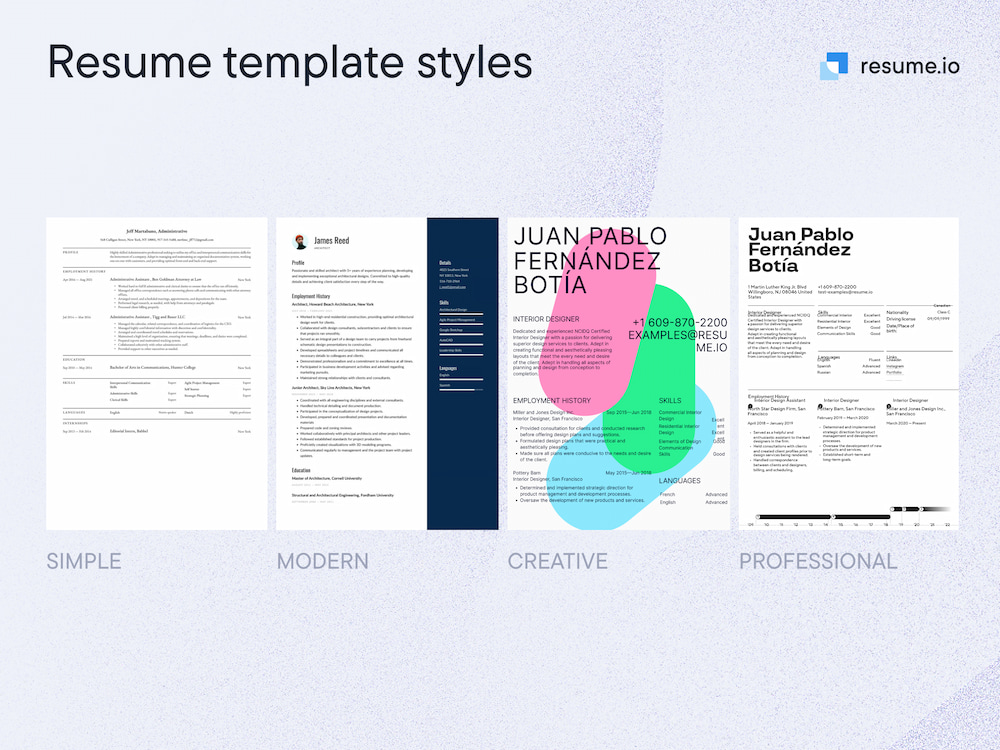
Professional resume templates
Our collection of professional resume templates are classic styles with tried-and-true fonts and formatting. These templates exude a sense of expertise and seriousness about the position for which you’re applying. You can’t go wrong with a professional template if you work in law, business, education, healthcare, finance, accounting, or real estate.
Creative resume templates
When you’ve got to go bold, look no further than our creative resume templates. This collection features larger-than-life font sizes, eye-catching headers, and fun color palettes with patterned backgrounds. These templates are perfect for creative professionals like artists, designers, photographers, actors, and anyone in this field.
Modern resume templates
When you’re in need of a fresh look that’s still professional, our modern resume templates are the perfect choice. These innovative designs use minimalist headers and clean dividing lines to add a spark that makes your resume stand out. Check out these templates if you work in IT, engineering, marketing, administration, HR, and sales.
Simple resume templates
If you’re in need of a resume that’s attractive and gets the job done, our simple resume templates are here to help. These formats are easy to read and offer just the right amount of color and design accents. If you work in hospitality, retail, transportation, or are a student or intern, our simple resume templates are the right choice for you.
What makes the best resume template?
The best resume templates contain the right sections and formatting choices to make your experience jump off the page. Here’s what to look for in your next resume template.
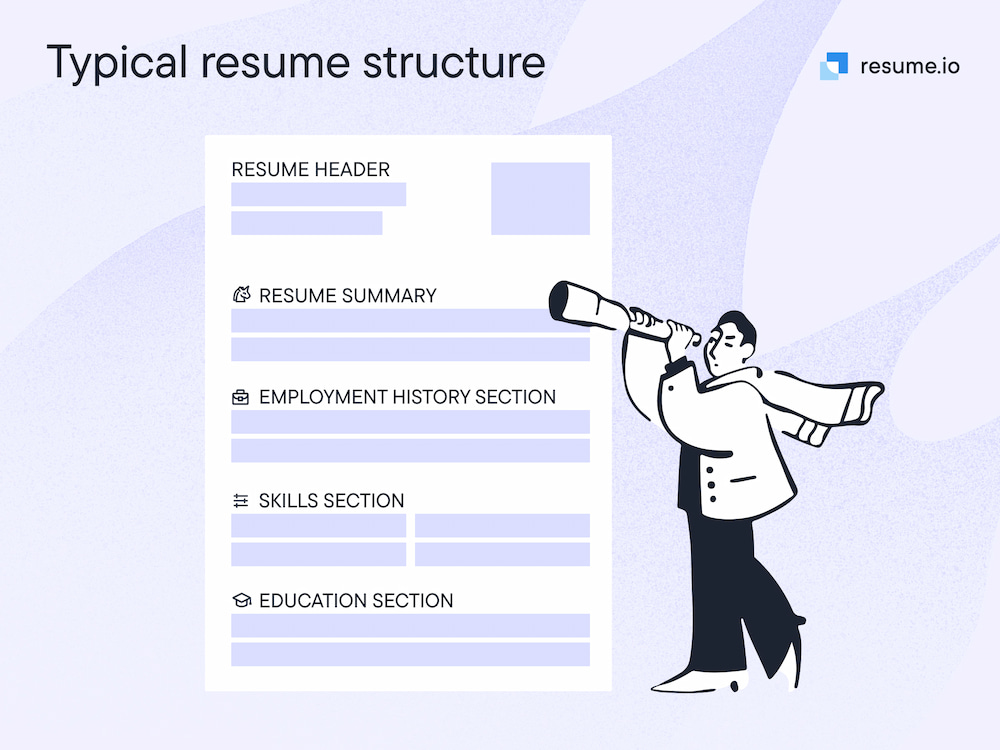
- An attractive header: The resume header is arguably the most important part of the template because this is where most of the layout design will come into play. Always choose a template with a header that emphasizes your name and offers enough space for your contact details and links to your LinkedIn or professional portfolio.
- Readability: A good resume template should be easy to read. While readability is determined by a combination of factors, including font and color, one of the key things to look for is a balance of white space to text. Your resume should be well-balanced—not too sparse or overcrowded with information. You can use a one-column or two-column layout to optimize its presentation.
- The right amount of space for your experience: When choosing a resume template, it’s important to consider the amount of experience you have, and so the amount of space you’ll need on the page. For mid and senior level applicants, look for templates that offer plenty of space in the employment history section. Students should look for page designs that can easily be filled with only two or three entries.
- Professional font styles, sizes, and colors: Your font style should be easy to read and somewhere between 10-12 points in size. Also, make sure to choose a professional color scheme that stands out while still painting you as a serious candidate.
- Customizable: A great resume template can be customized to your needs. Resume.io’s templates are all housed inside of our intuitive builder tool, making it easy to create and download different versions in a few clicks.
- The right file format: Make sure to check the job description carefully and download your resume in the version the employer is looking for. When in doubt, PDF is generally the best option for emailing, printing, and uploading to online application portals.

